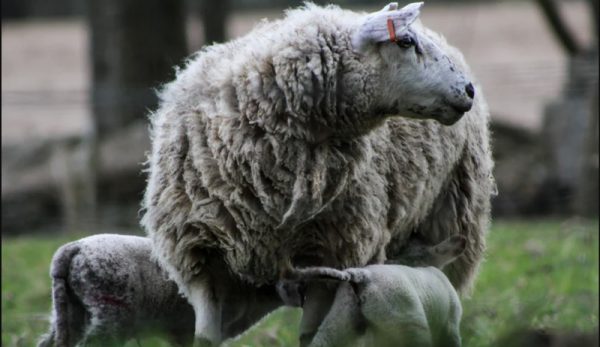
There are all kinds of cliches that ring true—an apple a day keeps the doctor away, an ounce of prevention is worth a pound of cure … you know them. But when it comes to keeping your herd of sheep healthy, the cliches really ring true. And even if you have your first-aid kit already to go, it’s just far easier to maintain a healthy sheep or lamb than it is to bring one back to health.
Good Nutrition Is Key
It’s simply vital to feed your sheep and lambs the best possible hay and grain that you can afford. Lambs especially need fine-stemmed grass and legumes like alfalfa. Adult sheep also prefer finer stemmed grass but will eat the coarser stems if that is all there is.
Lambs also need a quality feed with a coccidiostat in it (or they need to be served it). This prevents coccidiosis, a parasitic disease that strikes young lambs between one and six months.
But one study in the U.K. found that lambs in the 2 to 4-month age group are the most susceptible. Lambs that won’t eat and have dirty tails (indicating diarrhea) need to be considered for having coccidiosis. If not treated with additional, stronger doses of a coccidiostat, the lamb may start having bloody diarrhea, severe dehydration and finally, death.
The lambs nursing mothers also need a high-quality hay and grass mixed with alfalfa, as well as a constant source of clean water.
Pregnant ewes need very high-quality food and alfalfa hay because there simply is not much room in their digestive system.
Read more: You don’t want to use it, but you still need a first-aid kit with these items for your sheep.
Other Nutritional Needs
To keep your sheep in tip-top shape, you need to offered them a trace mineral and salt mixture whenever they feel the need to eat it.
It’s really, really important to make sure what you offer them is specifically made for sheep. Feed for other livestock can contain copper, and copper is very toxic to sheep.
Check out this website to read more about what copper toxicity is and what it does to sheep.
Don’t Forget Your Vaccines
I know that by now you all have baking soda in your first-aid kit for digestive problems like bloat. And of course, you have needles and syringes.
So don’t forget your CDT vaccine for your older sheep and your lambs!
A refresher: CDT vaccination helps to protect healthy sheep and lambs against Clostridium perfringens type C and D (overeating disease) and Clostridium tetani (tetanus).
Pregnant ewes should get a CDT vaccine about one month before giving birth. This gives their lambs some protection after they are born. Then, lambs get boosters at 4 and 8 weeks.
Read more: Vaccinating your sheep provides an ounce of prevention!
A Few Final Things to Keep Your First-Aid Kit on the Shelf
One of the best bits of advice I was given years ago with my poultry was to keep the coop clean and dry to avoid the worst diseases. I’ve tried to apply that to my sheep as well.
One thing to keep in mind is that sheep pick up worms pretty easily from the ground, so try to have a feeder that is at least tail-height to the sheep. That way, you won’t have to deal with poop in the feeder, which can spread worms fairly quickly.
Also keeping the shelter or barn floor clean and dry is a good practice to get into. It’s harder in winter, I know, but worth aiming for!
Finally, check your sheep’s hooves at least a couple of times a year. Remember, you have those great hoof trimmers in your first-aid kit. It’s a good idea to head off any hoof issues by trimming back what you can see. Treat anything early on that looks like it might be trouble for the hoof.
I don’t have a footbath for my sheep, but I do always keep some Hoof ‘n Heel in my first-aid kit. So far, with decent trimming and vigilance in keeping an eye on the hooves, I’ve had pretty decent luck with my sheep hooves.
So good luck not using that first-aid kit for your sheep! But I bet you’ll be darned glad you have it when the need arises.




